A MEDITATION ON EVENING OUT LIFE’S TURBULENT FLIGHT PATH
(AND ON WATCHING GAME OF THRONES LIKE A BUDDHIST)
Spoiler alert! This post contains references to Game of Thrones. (But I trust that anyone who cares has already seen the ending.)
As I sat down to watch the final chapter of one of the most downloaded shows ever, I set myself a little task — watch this last episode through the eyes of a Buddha. (I’m not an actual Buddhist but I was definitely up to the challenge.)
I’d written this meditation a few episodes earlier, having already noticed (like a Buddha would) how much tension was in my body at the end of a gruelling one-hour episode of battles, blood and betrayal. And of course the flood of relief wherever a glimpse of hope and heroism.
And what I realised was my life was not unlike Game of Thrones! (OK, well, there’s no dragons or white walkers – although we can certainly go about our days with zombie-mind.) But that we can experience tension and relief all day long as we butt up against challenges (however trivial) and finally solve them (or they solve themselves.)
So with my challenge set I pressed play, and through Buddha-eyes, here’s what I did:
- Released all expectations of what this final episode was going to be. The fact that it was the last episode ever was the first idea to let go. There is so much expectation, attachment and wanting built into that. I was just going to sit and let each scene unfold and try not to project what was going to (or should) happen.
- Accepted that I would likely experience tension. Likely experience relief. Likely experience a whole host of other emotions (anger, disappointment, joy, excitement, sadness.) And just let them come up and subside naturally on their own. Have awareness of all these feelings and where they present themselves in my body at the same time as watching the show.
- Put myself in the writers’ shoes. Had some empathy for the mammoth task of the creatives to write an ending that would please the fans, honour the characters and tie things off well. Empathy and understanding for how many millions of fans would be watching and judging and afterwards discussing. No easy feat! And not everyone would be pleased.
- Took a few minutes at the closing credits. Sat with the swirl of thoughts and feelings about what had just transpired. Sadness that there would be no more. Happy that the fate of each character had been told. And focused on all the positive awesome stories and scenes that were delivered into an hour and a half of viewing.
(Spoiler! Eg. That AMAZING scene watching Drogon the dragon burn down the Iron Throne, scoop up Dany’s dead body and fly off into the ashen horizon. That Cersei Lannister finally met her death, but in the arms of her true love – but also by being crushed and suffocated by an avalanche of Red Keep rubble. That Jon Snow did what Jon Snow does – the right thing – which wiped the world of another imminent Targaryn tyrant. And that through his sentence to Castle Black that he finally found freedom in being an outsider.)
I could go on. But having said all of this, even if you’re not a Game of Thrones fan, here’s a meditation to practice sitting with tension, relief and other sensations in the body and recognising that they do in fact have a lifespan and that they are just nomadic visitors passing on through.
At times, all life feels like is a ping pong match between two emotional states: tension and relief.
We get into an argument with someone; there’s tension. Then we make up and feel relief.
We’re waiting for an important phone call. Tension. When we finally receive it – relief.
Of course, this tension-relief paradigm isn’t just about things that we haven’t chosen. When we sit down to watch our favourite TV program there may have been so many tense and relieving rallies written into an hour (Game of Thrones, anyone?), that by the closing credits we need a few moments to collect ourselves.
There are countless other examples we could encounter on a daily basis so it’s no wonder that life can feel overwhelming and exhausting.
But the more we can live mindfully – when we’re more consistently attuned to what our bodies telling us — we can somewhat transcend this yo-yo state and more quickly return to enjoying the game — whatever the score.
MEDITATION
Let’s see if we can explore this further through meditation.
Get yourself into a loose, but alert position. Stretch out your spine. Cup your hands together like a pair of shells, or place them however you find restful. Connect with your breath at the tip of your nose and take a deep inhalation to fill up the lungs. Hold it for a moment and gently let go with a long breath out.
And dropping into your body now.
Placing your awareness on the body part that feels most tense in this very moment. Neck. Back. Or temples. The part that is clenched, or tight, or in pain. Keeping your focus here, breathing in to this area.
Just gently being with this tension, investigating the sensations. Becoming familiar with how tension presents itself in your body.
Now choose a body part where you feel no tension at all. Places like fingers. Toes. And ears. Rest in this area. Are there any sensations? How do you describe them?
Breathing in to this body part; connecting breath to body. Connecting this moment to body.
And if there’s a body part that’s experiencing pleasant sensations, notice that as well. What are the characteristics of these pleasurable feelings? Where are they located?
Continue breathing in to whichever body part feels most dominant right now.
Let’s now take an expanded perspective of your entire body. Stepping back to sense the completeness of all body parts together as one.
This is your body.
Made up of parts that experience tension. Parts that experience relief and pleasant sensations. Parts that experience neutrality.
And at any given moment the mix of sensations is changing. Just like in life. We experience stresses and calm. Anger and laughter. Fear and confidence. And of course, emptiness. Or nothing at all.
This is normal; an indiscriminate part of being human. And only when we are aware and ultimately accept this reality can we enjoy the game of life more as a spectator and less as the ball.
So, keep going with this meditation if it feels good for you, and return to the breath and the body whenever thoughts have taken over.
Enjoy.





